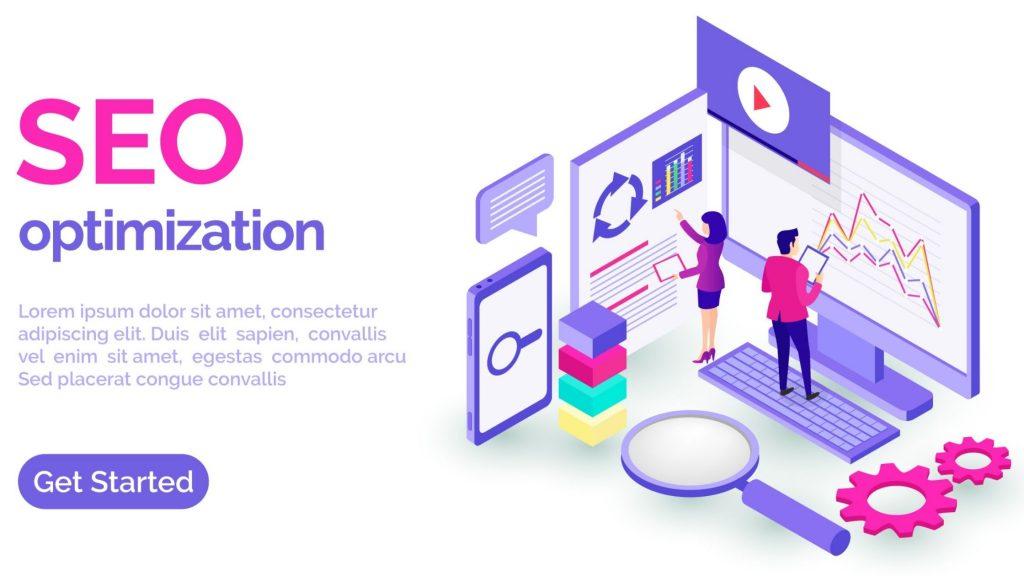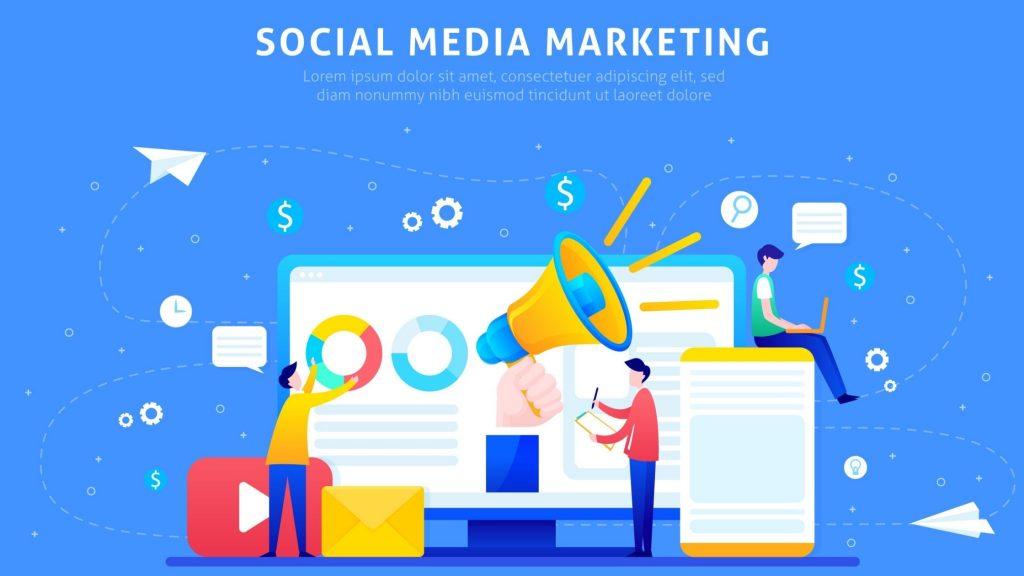Whether you’re looking for a pair of socks or a local plumber, you’re probably going to the same place: search engines. In recent years, digital marketing has become increasingly search engine-centric, with new tactics continuously developing to assist you to move your company up to the results. There’s been a lot of discussions recently about SEO vs SEM – and while both are excellent tools, you may be wondering which is best for you. Let’s look at how these phrases are defined, how they differ as strategies, and when you should prioritize one over the other.
Although SEO and SEM are both types of search marketing that firms can employ to reach their target audiences on search engine results pages like Google or Bing, they are not the same thing.
Search Engine Optimization focuses on improving organic results through keyword research and searches intent, whereas Search Engine Marketing is a combination of optimized content and paid adverts.
But which search marketing technique is right for your company? What about the price difference between SEO and SEM? The following article tries to find an answer to these questions:
Search Engine Optimization (SEO)

Search Engine Optimization, or “SEO,” is a complicated process that aims to increase the number of visitors to your website. You can take steps to improve the visibility of your website in search engine results pages such as Google and Bing. When search engine web crawlers visit your website, if its content is SEO friendly, it will be indexed higher. This increases the likelihood that the website will rank higher in search engine results pages (SERPS). SEO is also known as organic or natural search engine listings.
Types of SEO
On-page SEO is the process of optimizing each web page to target a term and appeal to both search engines and visitors. While you may believe that developing a well-designed website is enough to attract clients, without on-page SEO, you will not be able to capture the attention of search engines such as Google, Bing, and others that strive to understand how and where to best display your content. On-page SEO tasks include
- Providing your readers with high-quality and valuable SEO material.
- Using keyword phrases in titles, meta descriptions, headers, alt texts, and other places
- Website blog articles and page copy are developed and optimized for targeted keywords.
- URLs on web pages are cleaned and formatted to match keyword values.
- Improving website load times for a better viewing experience
- Internal Link Structures That Are Organized
Off-page SEO increases the authority and reputation of your website by building links to it from other high-quality websites. As the number of links pointing back to your site grows, Google sees your website as a more trustworthy source that users will visit. As a result, you’ll benefit from improved rankings and greater organic traffic. Off-page SEO tactics involve:
- Contacting and acquiring high-quality, natural back links from other relevant websites.
- Adding useful internet pages to social bookmarking platforms such as Stumble upon and Reddit
- Creating shareable material in order to receive more social media signals
- Increasing the number of local company citations for Name, Address, and Phone Number (NAP)
- Guest posting on other websites with a link back to the target site
- Other websites referencing and linking to your material
Search Engine Marketing (SEM)

Search Engine Marketing (SEM) is a digital marketing process used to promote your website. By advertising on Google Search Ads or Bing Search Ads, you can increase traffic and exposure on search engine results pages (SERPS).
If your website is unlikely to appear on the first page of search results, you can buy advertising space on search engines utilizing sponsored search advertising. Compare your website to those that have stronger back link profiles and more relevant content than you. Instead of having to rank higher in order to receive website traffic, you may pay per click to appear at the top of specific keyword searches.
Importance of SEM traffic
SEM traffic is one of your company’s most essential sources of online traffic. It is capable of focusing on specific keywords that are likely to produce leads on your website. Search engines are the most commonly used methods for locating a previously known solution to a problem. They are also used to provide a response to a specific issue or to learn how to accomplish something. SEM traffic is likely to be more useful than other sources, depending on the relevancy of the displayed web pages. This is due to the fact that it connects searchers to the items, services, or information that they are already looking for.
Difference between SEO and SEM
The key distinction between the two digital channels is that, whereas SEO focuses on enhancing a website to boost organic traffic for free, SEM focuses on gaining both organic and sponsored visitors through monetary means. Both are distinct aspects of search marketing, and understanding the fundamental differences between SEM and SEO can help you decide which technique to invest in first.
- SEM has an immediate impact, however, SEO takes time.
With just a few clicks, you may get your results in front of audiences. This, however, comes with a monetary cost, with your company having to hand over valuable marketing revenue to establish itself at the top of search results. While you’ll see immediate effects, you’ll need a budget to keep it going in the long run.
SEO, on the other hand, is something that you learn over time. Implementing an SEO plan can take months before a website begins to rank on search engines. In actuality, SEO is a simple approach to generate continuous traffic over a long period of time without investing a dime.
- SEM is superior to SEO for testing.
It’s ideal for testing because you can toggle SEM advertisements on and off. You can immediately adjust your ad copy, target new people, and select landing page content to test and see the difference in your tactics. SEO cannot be tested to this extent.
- SEO provides long-term benefit, whereas SEM does not.
SEM is only active for as long as you pay for the results to appear, whereas an SEO strategy evolves over time and produces long-term results.
- SEM clicks are purchased, whereas SEO clicks are not.
SEM results cost money for placements, whilst SEO results are free. You are charged every time a user clicks on an SEM result. When a user clicks on an organic (SEO) result, you pay nothing.
- SEM results are displayed for a specific audience, however, SEO results are not.
While all search marketing tactics strive to engage with a specific audience, only SEM allows you to do so. SEO, on the other hand, does not allow you to determine who sees your search results.
Which one to prefer for business?
Some digital marketers argue over which strategy is superior for driving sales: SEO vs SEM. It is conditional. Nothing beats SEM for instant traffic and advertising. SEO, on the other hand, is concerned with acquiring, monitoring, and optimizing organic (unpaid) search traffic. Long-term SEO is the best strategy.
Yes, you could simply pick one. Some organizations begin with SEM techniques and then shift their focus to SEO later on. However, you’ll quickly discover that combining SEO and PPC yields superior results. Nonetheless, before developing a plan that sticks, you must evaluate your budget, objectives, and key performance indicators (KPIs).
Conclusion: Choosing between SEO and SEM as a key approach for your digital marketing can be perplexing, but the distinction between these two paths is ultimately about the type of traffic you drive to your website. Because SEO is about creating outstanding content, interlinking with other websites, and targeting the appropriate keywords, it generates organic traffic — online users are pulled to your site of their own. SEM, on the other hand, increases inorganic traffic because you’re effectively paying for clicks.
Alo read:


